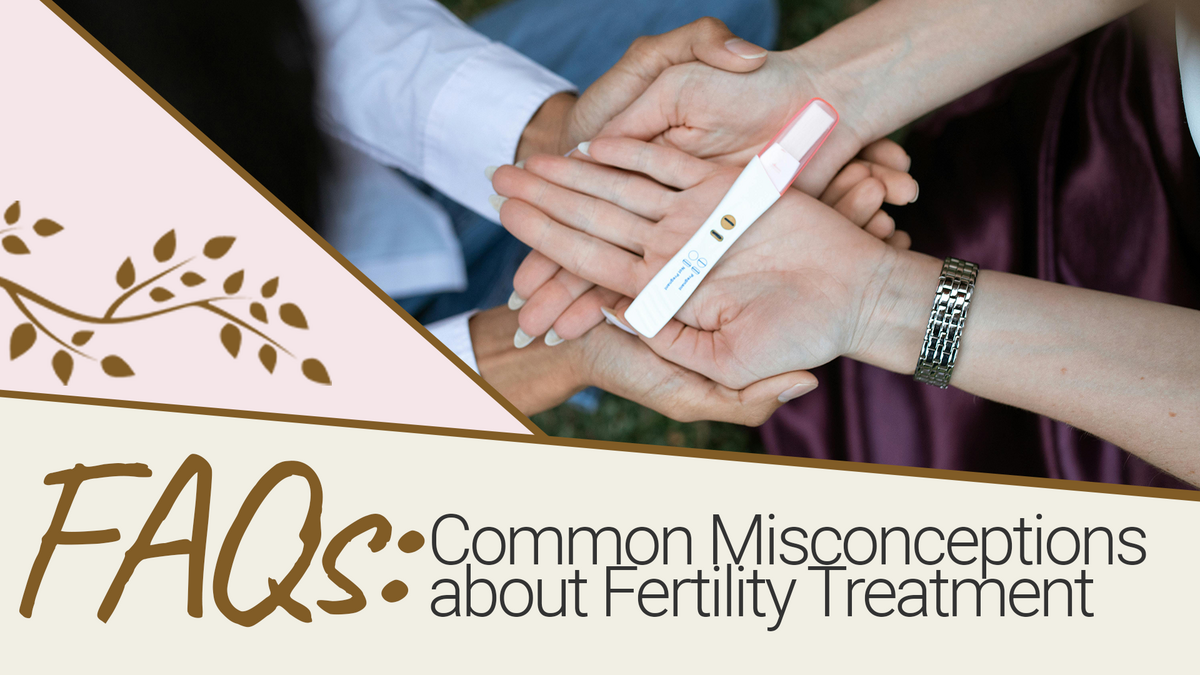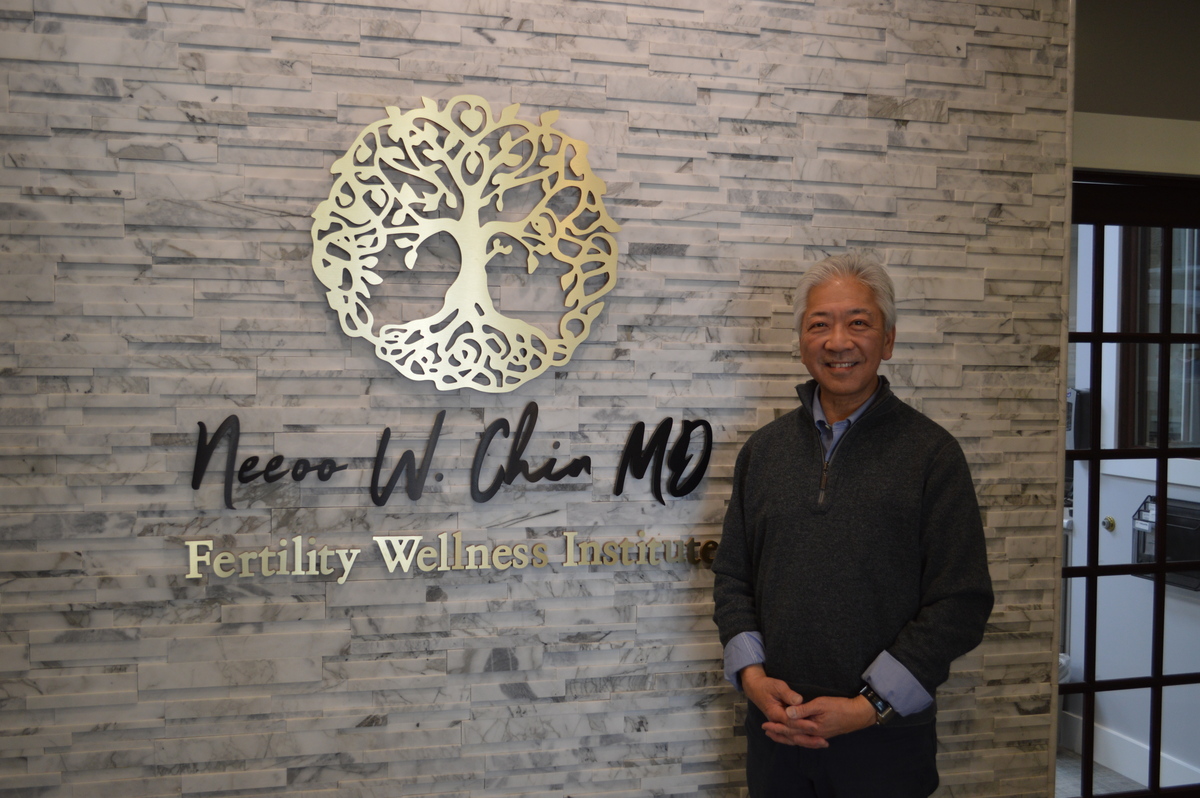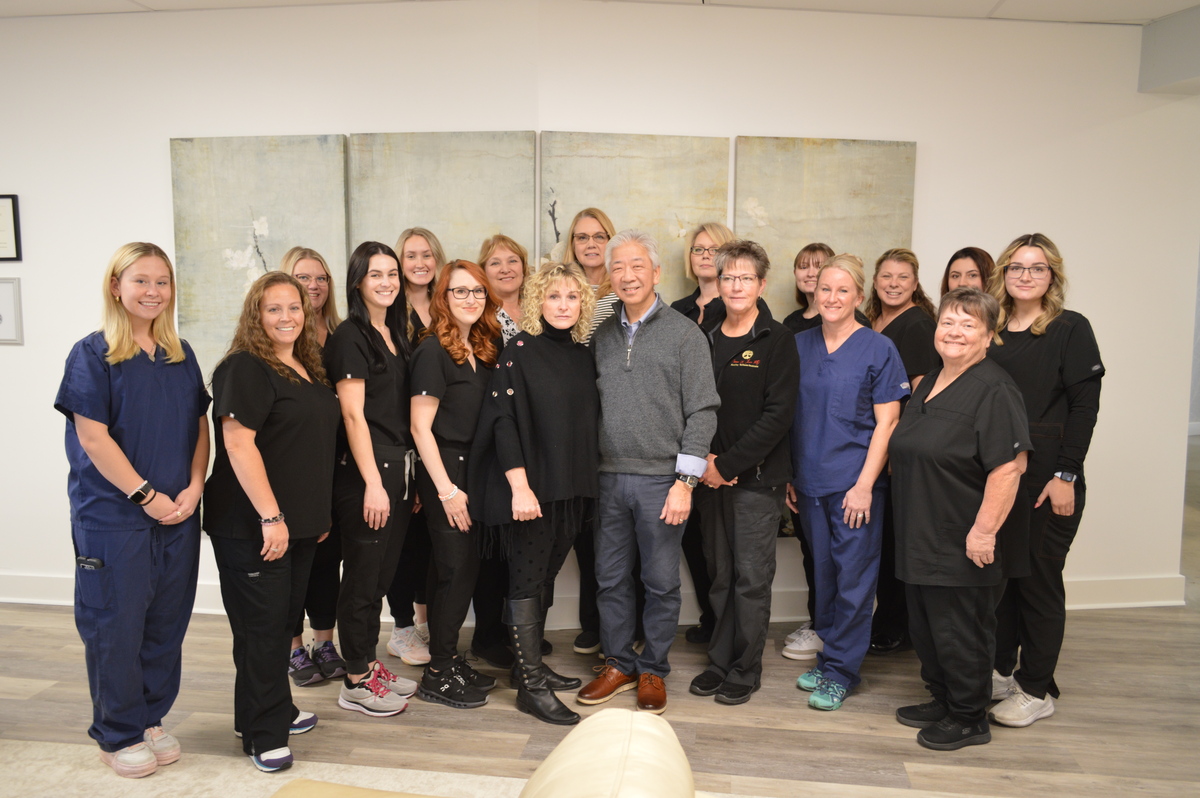FAQs: Common Misconceptions About Fertility Treatment

If you are seeking fertility treatment, it is only natural that you will have many questions regarding treatment. While the internet is a great source for information and making connections with others who have had experiences similar to your own, there are many misconceptions, so you should always speak with a medical professional about your questions or concerns.
These misconceptions can lead to women avoiding certain kinds of treatments, or fertility medicine altogether. Clearing up these misconceptions helps women and couples trying to conceive get a better understanding of which forms of fertility treatment may be right for them.
In this post, we will discuss four unique misconceptions that we hear regarding fertility medicine. Then, we will explain these pieces of misinformation, with the truth, so you can learn the facts you need to know regarding your reproductive health. Keep reading to learn more!

What are Some Common Misunderstandings About Fertility Treatment?
When it comes to fertility treatment, there are numerous myths and misunderstandings that can lead to confusion and anxiety for those seeking help conceiving. These myths can be alarming, hurtful, or even dangerous, and the purpose of this post is to dispel some of the most common misconceptions regarding fertility treatment.
By addressing these and other misconceptions, we aim to provide clarity and understanding about fertility treatment, empowering individuals and couples to make informed decisions about their reproductive health.
Misconception: Fertility Treatments Always Result in Multiple Pregnancies
Fact: Fertility treatments do not always result in pregnancy, let alone multiple pregnancies.
While it is true that treatments such as in vitro fertilization (IVF) can increase the chances of multiple pregnancies, advancements in technology and improved protocols aim to reduce this risk.
It is a misconception that fertility treatments always result in multiple pregnancies. While this can happen, the focus of modern fertility treatments is on achieving a successful, healthy pregnancy with the lowest possible risk. It's important for individuals considering fertility treatments to consult with a qualified medical professional to understand the potential risks and benefits, and to ensure that they are receiving the most appropriate care for their circumstances.
It is true that during IVF and other fertility treatments sometimes multiple embryos are created, this is not always the case, and this does not mean you will have multiple pregnancies. Viable embryos can be frozen and used if you decide to have more children in the future.
Sources:
https://www.nhs.uk/conditions/ivf/#:~:text=IVF%20doesn't%20always%20result,as%20hot%20flushes%20and%20headaches
https://www.marchofdimes.org/find-support/topics/planning-baby/thinking-about-fertility-treatment
Misconception: Fertility Treatments are Only for Older Women.
Fact: Fertility treatment is right for couples in their late 20s or older who have been trying to get pregnant for at least a year.
There is a common misconception that fertility treatments are only for older women. However, it's important to clarify that fertility treatments can benefit individuals or couples of various ages. While age can affect fertility, treatments like IVF can assist people of all ages in achieving pregnancy, depending on their specific circumstances and fertility issues.
For older women, fertility treatments can help address age-related fertility issues such as decreased egg quality and ovarian reserve. However, fertility treatments can also be beneficial for younger individuals or couples who may be facing infertility due to factors such as blocked fallopian tubes, endometriosis, polycystic ovary syndrome (PCOS), or male factor infertility.
It is true, however, that the Fertility Wellness Institute of Ohio does not work with very young patients. We accept patients who are in their late 20s or older and have been trying to get pregnant for over a year without success.
Ultimately, the decision to pursue fertility treatments should be based on individual health and fertility considerations rather than age alone. Individuals and couples need to consult with a fertility specialist to assess their unique fertility challenges and explore the most suitable treatment options, regardless of their age.
Source: https://www.parents.com/getting-pregnant/infertility/causes/infertility-in-your-20s-30s-40s/#:~:text=When%20to%20seek%20help,health%20care%20provider%20even%20sooner
Related reading: https://healthcare.utah.edu/the-scope/health-library/all/2021/10/fertility-treatments-between-age-35-40
Misconception: Children Conceived with Fertility Treatments are "Test Tube Babies"
Fact: The term "test tube baby" can be hurtful and does not reflect the reality of modern fertility treatments.
The term "test-tube baby" is a popular but outdated and inaccurate description of assisted reproductive technologies, particularly IVF. While it is true that fertilization may occur in a laboratory during IVF, the term oversimplifies the complexity of the process. Modern fertility treatments involve various steps and technologies beyond simple "test-tube" procedures.
In reality, fertility treatments can involve hormone therapy, egg retrieval, sperm collection, and embryo transfer, among other steps. These processes can take place in a reproductive endocrinologist's office, a fertility clinic, or as is the case with the Fertility Wellness Center, a specialized laboratory. The goal of these treatments is to facilitate successful pregnancy in individuals and couples who are struggling with infertility.
It is important to recognize that not all fertility treatments result in "test-tube babies." There are various options and techniques available to meet the individual needs and circumstances of patients. Many fertility treatments involve the baby being carried to term inside the mother's body. It is essential to seek accurate information and guidance from fertility specialists to understand the full range of available options and to dispel misconceptions about the process.
Source: https://www.wgbh.org/news/national/2021-12-29/elizabeth-carr-first-person-in-the-u-s-conceived-through-ivf-turns-40-years-old
Further reading: https://ecommons.luc.edu/cgi/viewcontent.cgi?article=4715&context=luc_diss
Misconception: Fertility Treatments Always Involve Invasive Procedures
Fact: While some fertility treatments involve procedures like egg extraction, many do not.
There is a common misconception that all fertility treatments involve invasive procedures. While some fertility treatments do include invasive procedures, such as egg retrieval in IVF, others may involve less invasive methods, such as ovulation induction with medications. The specific treatment plan depends on the underlying fertility issues and the recommended approach by fertility specialists.
It is important to understand that not all fertility treatments require invasive procedures. Many couples may be able to conceive through less invasive methods, such as fertility medications or intrauterine insemination. These methods are often the first line of treatment for common fertility issues such as ovulatory disorders or low sperm count.
It is crucial for individuals and couples experiencing fertility issues to consult with a fertility specialist to determine the most appropriate treatment plan for their specific situation. By seeking professional guidance, they can explore a range of treatment options that may or may not involve invasive procedures and make informed decisions about their fertility journey.
Source: https://www.fertilityny.org/blog/egg-retrieval-considered-reproductive-surgery
https://www.nhs.uk/conditions/infertility/treatment/

Fertility Treatment for Your Unique Needs from Fertility Wellness Institute
Your fertility treatment matters, but with so many different misconceptions swirling around, deciding on the best course of action can be intimidating. The best source of information for your fertility treatment questions is specialists and doctors who are board-certified in reproductive endocrinology.
The Fertility Wellness Institute of Ohio, located in West Chester, is here for your fertility treatment needs. Dr. NeeOo Chin is a board-certified reproductive endocrinologist, and he, along with our team of fertility specialists, has helped thousands of women conceive using IUI, IVF, and other fertility treatments.
Book an appointment with the Fertility Wellness Institute today to learn more about which fertility treatments may be right for you!
Satisfied with the difference Dr. NeeOo W. Chin has made in your fertility journey? Leave us a quick five-star review here!
Follow the Fertility Wellness Institute of Ohio on Facebook, Instagram, X, and LinkedIn!

